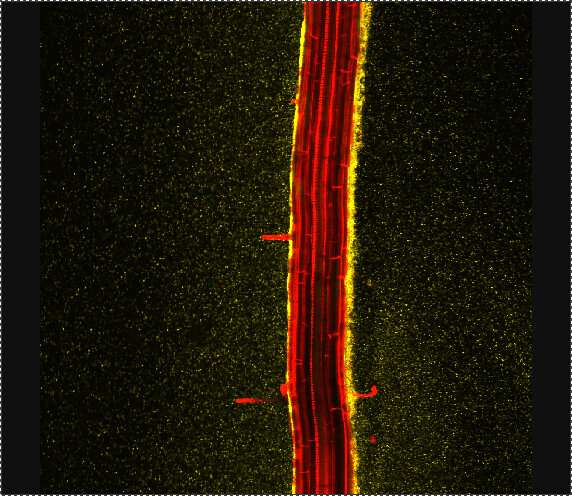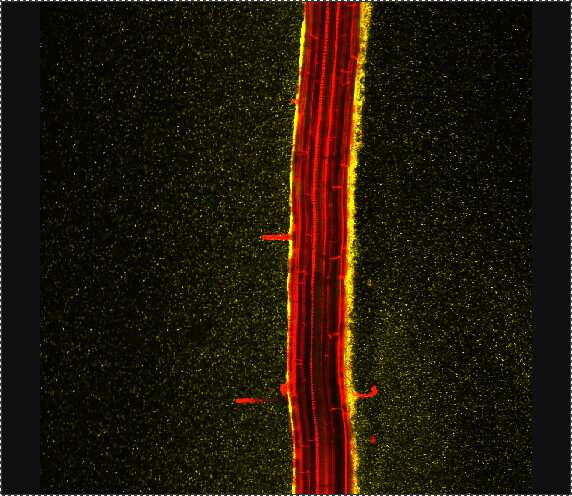Plant microbes suppress costly root immune responses to boost plant growth

Beneficial microbes are considered a major promise for sustainable crop production. Utrecht researchers discovered that beneficial microbes on plant roots suppress host immunity to fully colonize and benefit their host plant, just like their disease-causing pathogenic counterparts. Their findings were published October 24 in Current Biology.
All plants simultaneously interact with billions of microbes collectively called the plant microbiome. Some of these microbes cause disease with devastating effects on crop yields. "To prevent pathogen infection, plants have evolved a sophisticated innate immune system that recognizes conserved cell surface molecules that most pathogens possess. Activation of the plant immune system stops the invading pathogen, but this comes with fitness costs that significantly reduce plant growth," explains last author Roeland Berendsen from Utrecht University.
Fortunately, most microbes in the plant microbiome are harmless or even beneficial to the plant, as they promote plant growth or provide protection against diseases. Interestingly, such beneficial microbes possess cell surface molecules that are very similar to those of pathogens, but do not stimulate the costly response of the plant immune system like pathogens do.
Twofold benefit
"We discovered that certain beneficial root-dwelling bacteria are capable of suppressing root immunity through the excretion of specific organic acids that acidify the root environment. To our surprise we found that 42 percent of the tested root-dwelling microbiota are able to quench local root immune responses," first author Ke Yu from Utrecht University explains.
"This immune-modulating capacity benefits the host plant twofold: It allows the beneficial microbes to colonize the roots, and it likely prevents the growth-defense trade-offs that are typically associated with the activation of plant immune responses," Berendsen says.

The Utrecht discovery discloses a novel function of the root microbiome that is essential for plant survival in nature and agriculture. This knowledge can be used to develop novel strategies for more sustainable microbiome-assisted agriculture.
More information: Rhizosphere-associated Pseudomonas suppress local root immune responses by gluconic acid-mediated lowering of environmental pH. Current Biology, 24 October 2019. www.cell.com/current-biology/f … 0960-9822(19)31175-3
Journal information: Current Biology
Provided by Utrecht University Faculty of Science



















